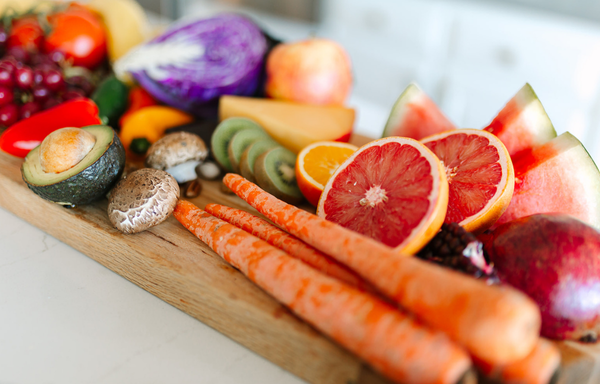

Lilli vs. A Plant-Based Diet: Can You Do Both?
Absolutely! You can follow a Low Insulin Lifestyle while being plant-based—you just need to be mindful of where your protein is coming from. Many plant-based diets rely on high-starch foods like grains, beans, and legumes as primary protein sources, which can drive up insulin levels. But with a few strategic swaps, you can enjoy a plant-based approach while keeping insulin low and metabolism balanced.
The Challenge with Traditional Plant-Based Proteins
Most plant-based proteins come from starchy or highly processed sources, including:
- Legumes like black beans, chickpeas, and lentils – While high in protein, they also contain a significant amount of starch, which breaks down into glucose and spikes insulin.
- Whole grains like quinoa and brown rice – While often promoted as healthy, they are still primarily starch, meaning they require a large amount insulin to be secreted.
- Plant-based meat substitutes – Many contain fillers, starches, and inflammatory seed oils, making them less ideal for an insulin-friendly lifestyle.
For someone managing insulin resistance, PCOS, or metabolic health, these foods can make it harder to regulate insulin levels—even if they’re technically “healthy” by typical standards.
The Low Insulin Lifestyle Approach to Plant-Based Eating
Instead of relying on starch-heavy proteins, focus on low-starch, plant-based protein sources that provide high-quality nutrition without spiking insulin. These include:
1. Minimally Processed Soy
Soy is one of the best plant-based protein sources when eaten in its unprocessed or minimally processed forms, including:
- Edamame – Whole, young soybeans that are naturally high in protein and fiber with minimal starch.
- Tofu – A versatile, complete protein with virtually no starch, making it an excellent insulin friendly plant-based option.
- Tempeh – A fermented form of soy that contains fiber, protein, and probiotics to support gut health while keeping insulin stable.
Soy has been unfairly demonized in some circles, but in its whole-food form, it is one of the most insulin-friendly plant proteins available.
2. Lupini Beans
Unlike traditional beans, lupini beans are almost entirely protein and fiber, with very little starch. They provide an excellent plant-based protein option without the insulin spike of other legumes.
3. Nuts and Seeds
- Almonds, walnuts, and macadamia nuts – Great for protein and healthy fats without starch.
- Sunflower seeds, chia seeds, and flaxseeds – High in protein, fiber, and omega-3s, all of which support metabolic health and insulin balance.
- Hemp seeds – One of the few plant-based complete proteins, meaning it contains all nine essential amino acids. Unlike many other plant proteins, hemp seeds are naturally low in carbohydrates and high in healthy fats, making them an ideal protein source for a Low Insulin Lifestyle. They also contain a good balance of omega-3 and omega-6 fatty acids, which support inflammation control and hormone health.
Nuts and seeds not only provide essential nutrients but also help keep blood sugar stable by slowing down digestion and reducing insulin spikes.
The Bottom Line
A plant-based diet can absolutely work within a Low Insulin Lifestyle—it just requires shifting focus away from starch-heavy proteins to insulin friendly, whole-food plant-based options.
- Swap lentils and beans for edamame or lupini beans.
- Replace grains with nutrient-dense nuts and seeds.
- Switch to plant-based protein powders such as pumpkin seed protein or hemp seed protein powder.






















